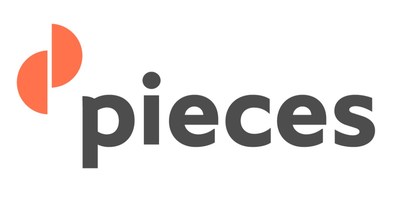TMCnet News
Industry Roundtable: How Communities Can Tackle the Mental Health and Substance Misuse Crisis to Maximize Their Collective ImpactDALLAS, Feb. 24, 2021 /PRNewswire/ -- Pieces, a healthcare AI company, recently convened a virtual roundtable to discuss how rising rates of mental health and substance misuse issues in the wake of COVID-19 are impacting individuals and communities. The group of leaders from community organizations not only shared their perspectives about how COVID-19 has exacerbated these problems, which already had a devastating impact on millions of Americans, but also on how to strengthen community connections to develop a more comprehensive support network for those who are suffering. The virtual roundtable participants included:
According to a Kaiser Family Foundation poll, 53 percent of U.S. adults reported that their mental health had been negatively impacted by the virus. Census Bureau data in December also showed that U.S. mental health problems have reached all-time highs, with almost half of Americans now showing signs of clinical anxiety or depression. Substance misuse data is also alarming with federal statistics confirming long-standing worries that overdose deaths would rise sharply during the pandemic – and that more people are now dying of drug overdoses than at any other point in U.S. history. "While our attention has been focused on COVID-19, we've had major public health problems raging in other critical areas in the background," said Amarasingham. "We must take these worsening trends as a call-to-action to refocus and double-down on our efforts to support these community organizations – and most importantly to connect these stakeholders to strategize, innovate and unite to combat this crisis together." Key takeaways from the roundtable included:
Williams agrees and emphasizes the need to eliminate misconceptions. "People should understand that mental illness and substance use are diseases – and have a disease process akin to physical illnesses. This acknowledgement would help to eliminate the idea that persons with mental or substance use challenges should help themselves whereas individuals with physical illnesses warrant professional treatment and support," he said. Lampier cites how this stigma can cause individuals to be hesitant to accept help. "Most people don't want to think they have mental health concerns. They're afraid of what they might lose once society labels them someone with mental health issues. For example, the right to own a gun, jobs, possibly their children if they seem as unfit, etc. They feel a lot of their freedoms will be lost when they are documented as someone with these issues. Nobody wants to be labeled."
Lampier agrees. "It really does take a village. There are different experts in each field for a reason. Community organizations have to be willing to collaborate to meet just the basic needs of clients. Some organizations try to be a 'one-stop-shop' and when they do that they spread their organization too thin and cannot give the best care to the clients," he said. Williams shared that Houston has established collaborations and networks around substance misuse service delivery. "The HHD partners with its local mental health authority, mental health and recovery providers, and advocacy groups to increase help-seeking behaviors and reduce the stigma. Our partners work together around referrals and services, shared staff trainings and joint funding opportunities. We collaborate with public, private and non-profit sectors to increase the provision of services for individuals in need," he said.
Williams cites that technology has empowered the HHD to better communicate with those they serve to promote important health messages and reminders. "We also use technology to capture data on key performance indicators to demonstrate the effectiveness of our programming and measure metrics that matter to those they serve," he said. Lastly, Amarasingham stresses that communities need more resources to support this important work. "I'm excited by new federal efforts to fund initiatives that address these critical issues. With better public policy, purpose-built technology, and more funding we can get a hold of this crisis and create a lasting impact for this generation and generations to come," he said. To learn more, please download the executive briefing here or register for the upcoming webinar with the panel. About Pieces Media Contact:
SOURCE Pieces, Inc. 
|

